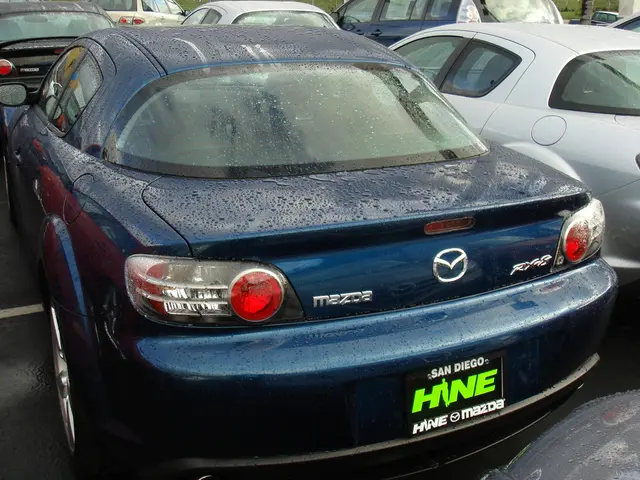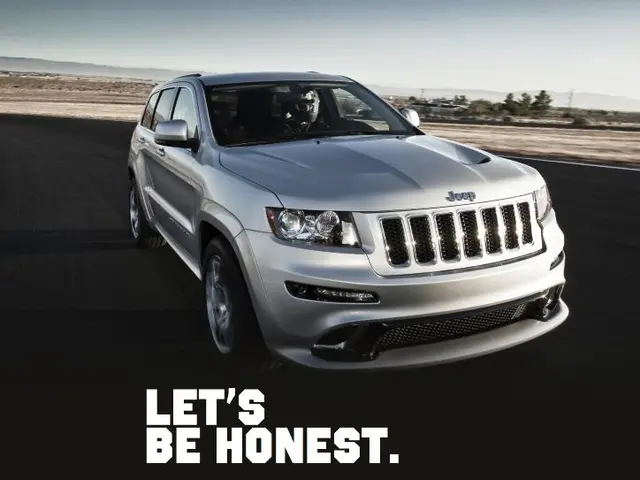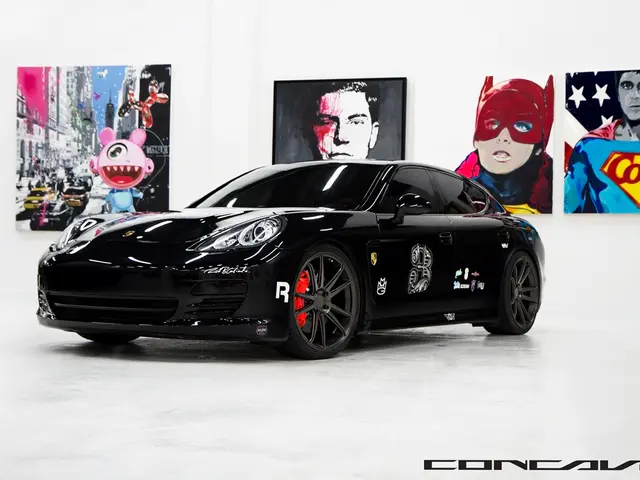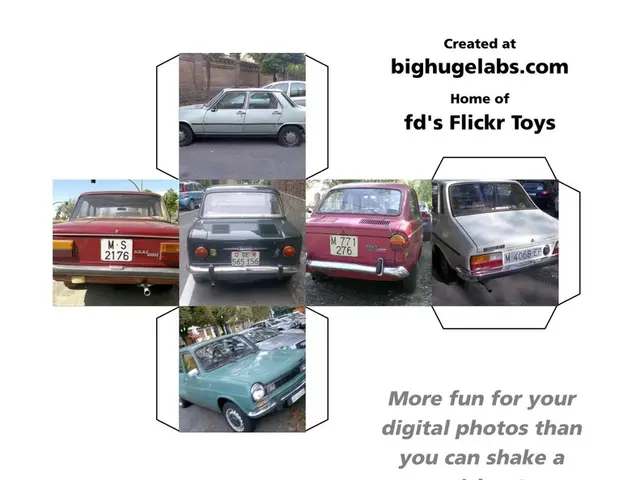Saving Europe's Car Industry: EU Relaxes Climate Targets Due to Challenging Conditions
EU climate targets granted extended compliance period for automakers - Automakers granted extended timeline to reach EU's climate emission standards.
In a bid to avoid crippling fines and let the struggling European car industry breathe, the EU is giving auto manufacturers a bit more time to meet their climate targets. The European Parliament unanimously voted in favor of this extension in Strasbourg.
Officially, the EU member states still need to endorse the decision, but they've already expressed their approval for a postponement earlier this week. This move follows the EU Commission's proposal, which states that companies no longer need to reach annual targets but rather have a three-year grace period. If companies exceed the targets this year, they can avoid penalties by overcompensating in the two following years.
The German Association of the Automotive Industry (VDA) regards the postponement as a significant milestone. "Politics isn't just about setting goals; it's about enabling their achievement," said VDA President Hildegard Müller to the German Press Agency. She emphasized that the current conditions are subpar in several areas, including the expandability of charging infrastructure, electricity costs, semiconductor supplies, and battery production. The international competitiveness of the industry can't be compromised further.
Why Fines Are Looming
The mounting pressure stems from fleet limits that regulate carbon emissions per car, with stricter mandates in place since the start of the year. In 2024, the limit was 115.1 grams of CO2 per km per vehicle — measured by the WLTP test procedure. For this year, it's 93.6 grams, declining to 49.5 grams by 2030.
The average annual emissions of all registered cars in the EU must not surpass the limit. Manufacturers are liable for fines if they emit too much CO2. However, the increasing reluctance of consumers to adopt electric vehicles could cause carmakers to exceed the limits.
The Industry in Peril
With China and the US intensifying competition and the auto industry grappling with the trade conflict with the US, the sector is feeling the heat. US President Donald Trump initiated a 25% tariff on cars and automotive parts in April, providing a significant blow to the industry.
The United States is the most critical trading partner for the German auto industry, purchasing 13.1% of exports, more than any other nation. Nearly every third Porsche and every sixth BMW was sold in North America in 2024, with VW, Audi, and Mercedes-Benz each accounting for 12 to 15% of sales.
Domestically, the picture is just as uncertain. The Federal Motor Transport Authority reports that around 2.8 million cars were newly registered in Germany last year, marking a 1% decline compared to the previous year and a 25% decrease compared to 2019, the year prior to the Corona pandemic.
Climate Protection in the Transport Sector
The transport sector has progressed slower than other areas in the quest for climate protection. Although emissions from Germany's transport sector decreased by two million tons compared to the previous year, according to think tank Agora Energiewende, this reduction is mainly due to reduced truck traffic caused by the economic downturn.
"The CO2 fleet limit is the most crucial climate protection instrument in the transport sector and has proven effective," says Felix Creutzig of the Potsdam Institute for Climate Impact Research. This is evident in car manufacturers increasingly offering affordable electric vehicles to attain targets. Creutzig was part of the expert advisory board on climate protection under former Transport Minister Volker Wissing and is a member of the sustainability advisory board of Mercedes.
Despite the relaxation welcomed by the CDU/CSU, SPD, and FDP, Greenpeace and the Greens strongly criticize the decision, stating, "The EU Parliament could not have sent a worse signal to the struggling European car industry." The decision, they argue, will only widen the gap between European car manufacturers and their competitors in the electric vehicle market.
- The European car industry, facing challenging conditions, has received a grace period to meet their climate targets, as the EU relaxed regulations due to the difficulty in attaining vacuum training goals in the sector.
- The pressure on the industry arises from fleet limits regulating carbon emissions, with stricter mandates affecting vocational training in environmental science, finance, and transportation, particularly in the automotive industry.
- Furthermore, the industry is grappling with global competition, trade conflicts, and domestic economic downturn, making it imperative to focus on expanding charging infrastructure, reducing electricity costs, addressing semiconductor supplies, and enhancing battery production for sustainable growth.
- While some support the EU's decision as a necessary response to industry struggles, critics argue it will widen the gap between European car manufacturers and their competitors in the electric vehicle market, potentially undermining long-term climate-change goals in the transport sector.








